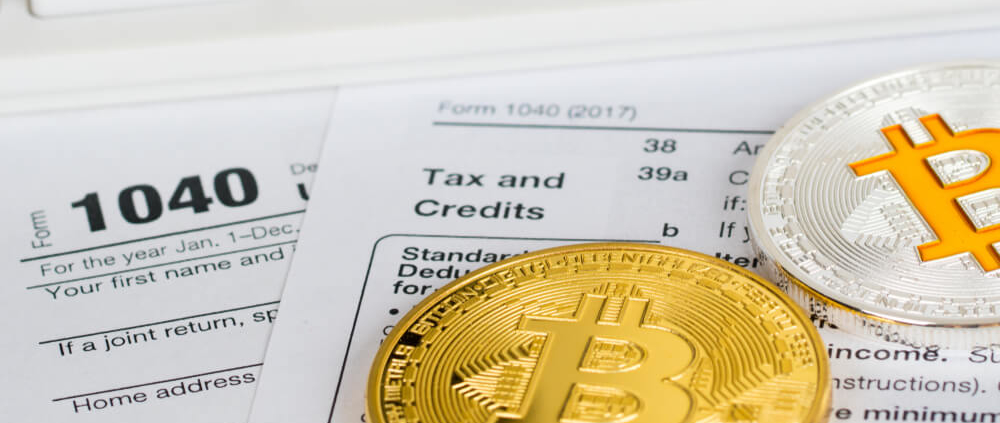How Are Your Crypto Holdings Taxed?
You may have bought Bitcoin or another cryptocurrency when it was inexpensive and decided to sell when it went big. Alternatively, you may have bought into a cryptocurrency later, when it was in the news for great performance, and sold your holdings later to turn a profit. Either way, the gains you’ve made on your crypto dealings give you tax exposure.
How do taxes work for cryptocurrency earnings?
Whatever actual dollar earnings you may make selling cryptocurrency, the IRS applies capital gains tax rules to them. In other words, the IRS reviews cryptocurrency holdings the way it does stocks or mutual funds.
How much you actually owe in taxes depends on how long you held on to your cryptocurrency. If you held on to it for under 365 days, short-term capital gains rates would apply. If you held on to these assets for over 365 days, you would pay a lower, long-term capital gains tax rate. Understanding what you owe in taxes on your cryptocurrency dealings in a given year, however, requires awareness of a couple of other rules.
When you use your cryptocurrency directly to buy something
If you pay for a purchase directly with cryptocurrency, you’ll owe taxes on the dollar value that your cryptocurrency appreciated in the period that you held on to it. You’ll even owe sales tax on the purchase.
When you obtain cryptocurrency through mining activity
If you mine cryptocurrency using computers known as mining rigs or get cryptocurrency in exchange for goods or services that you sold, the fair market value of the cryptocurrency on the day that you gain ownership of it applies, and you pay regular income tax on it.
Filing taxes on your crypto earnings
If you’ve participated in crypto dealings, it would be a good idea to maintain records so that you can pay your taxes. IRS Form 1040 now asks taxpayers to submit information on any cryptocurrency transactions over the preceding year. If you’ve made such transactions, there are a few points to keep in mind.
You need to keep records: You need receipts for every purchase or sale of cryptocurrency. Your cryptocurrency exchange likely provides the IRS with a 1099-B report on your crypto transactions, but this report is unlikely to include information about what you originally paid for your crypto if you use an offline wallet. Software tools with names like Cointracker and Koinly help you keep track of these transactions and provide you with information to put in your tax forms.
Fill out the right tax forms:Various tax forms apply when you attempt to report your crypto dealings. Form 8949 records all the purchases and sales that you’ve made as investments, Schedule D records your capital gains and capital losses, and Schedule C records your earnings from mining.
Hire a professional, or file yourself:Services like TokenTax help you put your crypto and dollar taxes together to prepare for tax filing. Alternatively, since the rules to do with crypto keep evolving, you could simply go to a CPA to help you file with fewer worries.
There are ways to minimize what you owe in crypto taxes
Hold on to your investments: When you sit on your investments for more than 365 days, you get the long-term capital gains tax rate on your profits, nearly halving your tax rate.
Allow your gains and losses to cancel each other out: If you made $50,000 on Bitcoin, but lost $10,000 on Etherium, you would only owe taxes on $40,000 out of the Bitcoin earnings. You could do this in a deliberate way. You could look through your portfolio to find out which crypto investments lost money, and sell them. You would make an effective loss that way and lower your taxes. If you lose more money than you gain in any one year, you get to deduct the excess, up to $3,000, against your personal income, and even carry any unused losses forward against future gains.
Wait to sell, until things are favorable: If you have time, it could be an idea to simply wait to sell your crypto until a lower tax rate comes around. Alternatively, you may have retired, taken time off from work to go back to school, or even got laid off. Any of these occurrences could lower your income and move you to a lower tax bracket. If you were to sell your crypto holdings at such a time, you would owe less in taxes.
Save by claiming mining expenses:Mining for cryptocurrency isn’t cheap. You need to buy high-performance computers, spend on electricity running them, and pay for internet connectivity. These are costs that you can deduct on your tax return as either a business or a hobby.
Think about putting your crypto in a retirement plan: If you park your crypto in a Roth IRA or a regular IRA, you are able to avoid being taxed on investment appreciation altogether. These may not be as easy to work as a regular brokerage account, but they can be effective. You’ll need to find a crypto investment firm to open a self-directed IRA for you to make this happen.
Preparing to pay taxes on what you owe on your cryptocurrency dealings isn’t hard, but it does require familiarity with the rules that apply. With these ideas in mind, you should be able to understand how taxes work for crypto.



Leave a Reply
Want to join the discussion?Feel free to contribute!